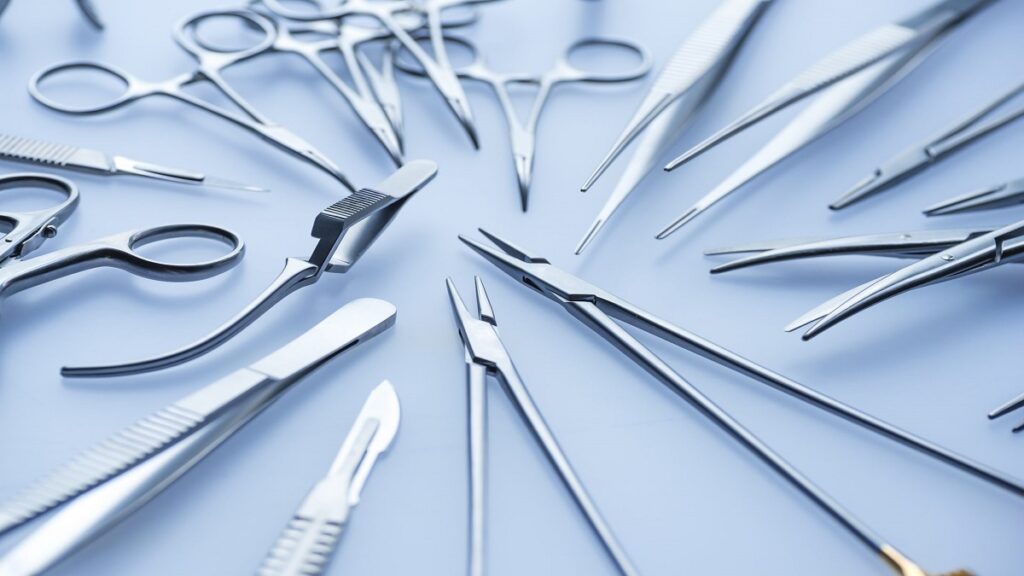In medicine, devices play an important role in accurate diagnosis and effective treatment. Otolaryngology, also known as ear, nose, and throat medicine, relies heavily on these specialized instruments to diagnose, diagnose and treat various ear, nose, and throat conditions. ENT Instruments in UK play a central role in this area and this shows their importance. Common instruments used in the UK; technological progress; Specialist roles within the profession as well as the challenges and opportunities associated with the sector.
Importance of ENT Instruments in Medical Field
ENT Instruments in UK play a critical role in medical practice due to their ability to enhance diagnosis and treatment, provide precision in procedures, and enable minimally invasive approaches.
Enhancing Diagnosis and Treatment:
ENT instruments assist doctors in diagnosing various conditions related to the ears, nose, and throat. Tools like an otoscope and tympanometer help visualize ear canal anatomy while measuring middle ear function respectively; nasal endoscopes and laryngoscopes allow specialists to visually inspect nasal and throat passages for abnormalities or obstructions that might cause symptoms, as well as pinpoint their root cause allowing more targeted treatment plans to take effect more effectively.
Precision and Accuracy in Procedures:
ENT instruments provide precision and accuracy during surgical procedures. Equipment like sinusscopes and microdebriders enable surgeons to access and treat sinus conditions with minimal damage to surrounding tissues. Myringotomy instruments enable surgeons to make small incisions in the eardrum in order to relieve pressure or drain fluids more effectively; using such instruments surgeons can perform delicate procedures with increased effectiveness.
Minimally Invasive Procedures:
Recent advances in ENT instruments have enabled surgeons to utilize minimally invasive procedures. For instance, nasal endoscopes equipped with HD cameras enable surgeons to navigate and treat sinus conditions without external incisions – leading to reduced pain levels, faster recovery rates, and increased patient satisfaction.
Common Used ENT Instruments in UK
In the United Kingdom, specialists use various ENT instruments to diagnose and treat patients. Commonly used instruments include:
Otoscopes:
An otoscope is a handheld instrument used to examine the ear canal and eardrum for infections, build-up of wax or structural abnormalities in order to identify infections, structural anomalies or possible infections.
Tympanometer:
A tympanometer measures the movement of the eardrum in response to sound and pressure changes. This allows physicians to better diagnose conditions like middle ear effusion or perforated eardrum.
Nasal Endoscope:
This instrument comprises a flexible tube fitted with a camera and light source to facilitate visualization of nasal passages and sinuses to help diagnose sinusitis, polyps, or tumors.
Laryngoscope:
A laryngoscope allows healthcare providers to easily visualize the larynx and vocal cords, helping diagnose conditions like vocal cord paralysis, nodules, or tumors.
Sinuscope:
A sinusscope is an instrument designe to examine and treat conditions affecting the sinuses. It provides a clear view into the sinus cavity for precise interventions.
Microdebrider:
A microdebrider is an FDA-approved powere surgical instrument use to safely and precisely excise soft tissues like nasal polyps or lesions from their roots while causing minimal harm to surrounding structures.
Myringotomy Instruments:
These tools are use to create a small incision in the eardrum in order to facilitate drainage or facilitate ventilation tube placement.
Nasal Forceps:
Nasal forceps can be use to quickly grasp and remove foreign objects such as polyps or tissue fragments from the nasal cavity.
Are ENT instruments suitable for other medical specialties?
While ENT instruments are designe for ear, nose, and throat procedures, some instruments also have applications outside this field of medicine. For instance, nasal endoscopes may be utilize by pulmonologists or gastroenterologists in certain procedures.
How can I pursue a career in ENT instruments?
To enter the field of ENT instruments, consider earning either a degree or certification in biomedical instrumentation or another related discipline. Furthermore, look into specialization training programs or apprenticeship opportunities available in your region.
More Read: Single Use Instruments in UK
You may also like
-
The Silent Battle Beneath: Understanding the World of Wormfare
-
Unveiling the White CBG Strain: Characteristics, Potency, and Therapeutic Benefits
-
Why Choose Growers Choice Seeds for Buying Marijuana Seeds
-
What type of clothes wear in Qatar Business class?
-
Obtained Review – Get What Your Business Needs to Fuel Expansion

